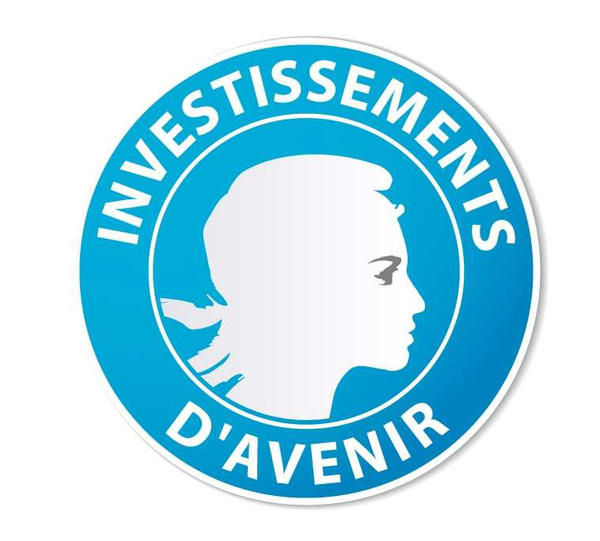Ruth Aylett (Heriot-Watt University)
Expressive behaviour, social signals
Ruth Aylett is a Professor of Computer Science at Heriot-Watt University, in Edinburgh where she researches social agents, affective comoutig and human-robot interaction. She has played a leading role since 2001 in a series of EU-funded projects in social agents, both graphical and robotic: integrating architectures for virtual agents for anti-bullying education; education in cultural sensitivity; long-lived robot companions; and an empathic robot tutor. She currently leads a UKRC-funded project SoCoRo investigated the development of a robot trainer in social signal recognition for high-functioning adults with an autism spectrum disorder.
Tony Belpaeme (University of Ghent, Plymouth University)
Robots as teachers: what do we know so far?
Tony Belpaeme is Professor at the University of Ghent and Professor in Robotics and Cognitive Systems at Plymouth University, UK. He received his PhD in Computer Science from the Vrije Universiteit Brussel (VUB). He leads a team studies cognitive robotics and human-robot interaction. He currently coordinates the H2020 L2TOR project, studying how robots can be used to support children with learning a second language. He coordinated the FP7 ALIZ-E project, which studied long-term human-robot interaction and its use in paediatric applications, and worked on the FP7 DREAM project, studying how robot therapy for Autism Spectrum Disorder. Starting from the premise that intelligence is rooted in social interaction, Belpaeme and his research team try to further the science and technology behind artificial intelligence and social human-robot interaction. This results in a spectrum of results, from theoretical insights to practical applications.
Joost Broekens (TU Delft & Interactive Robotics)
Humanoids in Education: Experiences in the Wild
Joost Broekens (PhD in computer science at the University of Leiden, NL, 2007) is assistant professor of Affective Computing at the Intelligent Systems Department of the TU Delft (NL), and co-founder and CTO of Interactive Robotics. He has published extensively on computational models of emotion (applied in games, robots, agents, and theoretical), as well as on computational modeling of mood (ranging from self-report to expression through robotic gestures in human-robot interaction). He is member of the executive board of the Association for the Advancement of Affective Computing (AAAC), associate editor of the Adaptive Behavior journal, and member of the steering committee of the IEEE Affective Computing and Intelligent Interaction Conference. He has organized multiple interdisciplinary workshops on topics including computational modelling of emotion (Lorentz, Leiden, 2011), grounding emotion in adaptation (IROS, 2016), and emotion as feedback signals (Lorentz, Leiden, 2016). He edited several special issues on these topics in, e.g., Springer LNAI, IEEE Transactions on Affective Computing, and Adaptive Behavior. His research interests include emotions in reinforcement learning, emotions in computational models of cognitive appraisal, emotions in games, human perception and effects of emotions expressed by virtual agents and robots, emotional and affective self-report, and human-robot interaction.
Ginevra Castellano (Uppsala University)
Learning robot’s social behaviours: overview and implications for human-robot interaction design
Ginevra Castellano is a Senior Lecturer at the Department of Information Technology, Uppsala University, where she leads the Uppsala Social Robotics Lab. Her research interests are in the areas of social robotics, affective computing and multimodal interaction, and include social learning, personalized adaptive robots, multimodal behaviours and uncanny valley effect in robots and virtual agents. She was the coordinator of the EU FP7 EMOTE (EMbOdied-perceptive Tutors for Empathy-based learning) project (2012–2016). She is the recipient of a Swedish Research Council starting grant (2016–2019) and PI for Uppsala University of the EU Horizon 2020 ANIMATAS (Advancing intuitive human-machine interaction with human-like social capabilities for education in schools; 2018-2021) project and of the COIN (Co-adaptive human-robot interactive systems) project, funded by the Swedish Foundation for Strategic Research (2016–2021). She was an invited speaker at the Summer School on Social Human–Robot Interaction 2013; member of the management board of the Association for the Advancement of Affective Computing; Program Committee member of ACM/IEEE HRI, IEEE/RSJ IROS, ACM ICMI, AAMAS, ACII and many others. Castellano is an Associate Editor of Frontiers in Robotics and AI in the Human-Robot Interaction Section and was a general co-chair of IVA 2017.
Raja Chatila (ISIR, SU)
On the ethics of research in social robotics
Raja Chatila, IEEE Fellow, is Professor of Robotics and Ethics at Pierre and Marie Curie University in Paris and Director of the Institute of Intelligent Systems and Robotics (ISIR) and of the Laboratory of Excellence “SMART” on human-machine interaction. His research covers several aspects in robot navigation, motion planning and control, cognitive and control architectures, human-robot interaction, and robot learning. He is member of the CERNA, The Ethics Committee on Research in Information Science and Technology of the Allistene Alliance in France, and chair of The IEEE Global Initiative for Ethical Considerations in Artificial Intelligence and Autonomous Systems.
Pierre Dillenbourg (EPFL)
Learning from interaction with robots
A former teacher in elementary school, Pierre Dillenbourg graduated in educational science (University of Mons, Belgium). He started his research on learning technologies in 1984. He obtained a PhD in computer science from the University of Lancaster (UK), in the domain of artificial intelligence applications for education. He has been assistant professor at the University of Geneva. He joined EPFL in 2002. He has been the academic director of Center for Digital Education, which implements the MOOC strategy of EPFL. He is full professor in learning technologies in the School of Computer & Communication Sciences, where he is the head of the CHILI Lab: "Computer-Human Interaction for Learning & Instruction ». With EPFL colleagues, he recently launched the Swiss EdTech Collider, an incubator with 60 start-ups in learning technologies
Jonathan Gratch (USC)
Why should we care about (appraisal) theory
Jonathan Gratch is Director for Virtual Human Research at the University of Southern California’s (USC) Institute for Creative Technologies and a Research Full Professor of Computer Science and Psychology at USC. He completed his Ph.D. in Computer Science at the University of Illinois in Urban-Champaign in 1995. Dr. Gratch’s research focuses on computational models of human cognitive and social processes, especially emotion, and explores these models’ role in shaping human-computer interactions in virtual environments. He studies the relationship between cognition and emotion, the cognitive processes underlying emotional responses, and the influence of emotion on decision making and physical behavior. He is the founding Editor-in-Chief of IEEE’s Transactions on Affective Computing, Associate Editor of Emotion Review and the Journal of Autonomous Agents and Multiagent Systems, and former President of the Association for the Advancement of Affective Computing. He is an AAAI Fellow, a Cognitive Science Fellow, and SIGART Autonomous Agent’s Award recipient.
Friedrich W. Hesse (University of Tuebingen)
Cognitive Interfaces: Potential of Digital Informational Environments
Friedrich Hesse is Founding Director of the Leibniz-Institut für Wissensmedien (IWM) and at present Head of the Knowledge Exchange Lab. He is Scientific Vice-President of the German Leibniz Association and is holding the Chair of the Department for Applied Cognitive Psychology and Media Psychology at the University of Tuebingen. He was research fellow at the Learning Research and Development Center (LRDC) and the Carnegie Mellon University in Pittsburgh.
Arvid Kappas (Jacobs University)
What are emotions?
Arvid Kappas is professor of psychology and dean at Jacobs University Bremen. He has been conducting research on emotions for over three decades. After obtaining his Ph.D. at Dartmouth College in the USA in 1989, he has lived and worked in Switzerland, Canada, the UK, and Germany, as well as holding visiting positions in Italy and Austria. He is a specialist in the scientific study of how people interact and communicate, specifically nonverbal communication and psychophysiology. Recently he has become interested in the interaction of humans and machines, particularly affective computing and social robotics. He was the president of the International Society for Research on Emotion (ISRE) from 2013-2018, is a fellow of the Association for Psychological Science, as well as the Society for Personality and Social Psychology and in the executive committee of the Association for the Advancement of Affective Computing.
Vanda Luengo (LIP6, Sorbonne University)
Technology enhanced learning
Full Professor in Computer Science. Engineer in computer science (USB, Venezuela), Master in didactics and PHD in mathematics and computer science (Grenoble). The research interest is in Artificial Intelligence in education and Technology Enhanced Learning. In particular about student and epistemic feedback models. This research is related to numerical and semantic systems, which analyze heterogeneous data in ill-defined domain (particularly in vocational learning) and propose adapted epistemic feedback. Chair in Technology Enhanced Learning (Environnement informatiques pour l’apprentissage Humain)
Pierre-Yves Oudeyer (INRIA)
Computational models of curiosity-driven development
Dr. Pierre-Yves Oudeyer is Research Director (DR1) at Inria and head of the Inria and Ensta-ParisTech FLOWERS team (France). Before, he has been a permanent researcher in Sony Computer Science Laboratory for 8 years (1999-2007). After working on computational models of language evolution, he is now working on developmental and social robotics, focusing on sensorimotor development, language acquisition and life-long learning in robots. Strongly inspired by infant development, the mechanisms he studies include artificial curiosity, intrinsic motivation, the role of morphology in learning motor control, human-robot interfaces, joint attention and joint intentional understanding, and imitation learning. He has published a book, more than 80 papers in international journals and conferences, holds 8 patents, gave several invited keynote lectures in international conferences, and received several prizes for his work in developmental robotics and on the origins of language. In particular, he is laureate of the ERC Starting Grant EXPLORERS. He is editor of the IEEE CIS Newsletter on Cognitive and Developmental Systems. He is also working actively for the diffusion of science towards the general public, through the writing of popular science articles and participation to radio and TV programs as well as science exhibitions. Web:http://www.pyoudeyer.com and http://flowers.inria.fr
Ana Paiva (INESC-ID)
Can humans and robots form a team? – The study of social interactions in teams of humans and agents
Ana Paiva is a Full Professor in the Department of Computer Engineering at Instituto Superior Tecnico (IST) from the University of Lisbon and is also the Coordinator of GAIPS, the "Intelligent Agents and Synthetic Characters Group" at INESC-ID (see http://gaips.inesc-id.pt). Her group investigates the creation of complex systems using an agent-based approach, with a special focus on social agents. Prof. Paiva's main research focuses on the problems and techniques for creating social agents that can simulate human-like behaviours, be transparent, natural and eventually, give the illusion of life. Over the years she has addressed this problem by engineering agents that exhibit specific social capabilities, including emotions, personality, culture, non-verbal behaviour, empathy, collaboration, and others. Her main contributions in the area of social agents have been in the field of embodied conversational agents, multi-agent systems, affective computing and social robotics.

